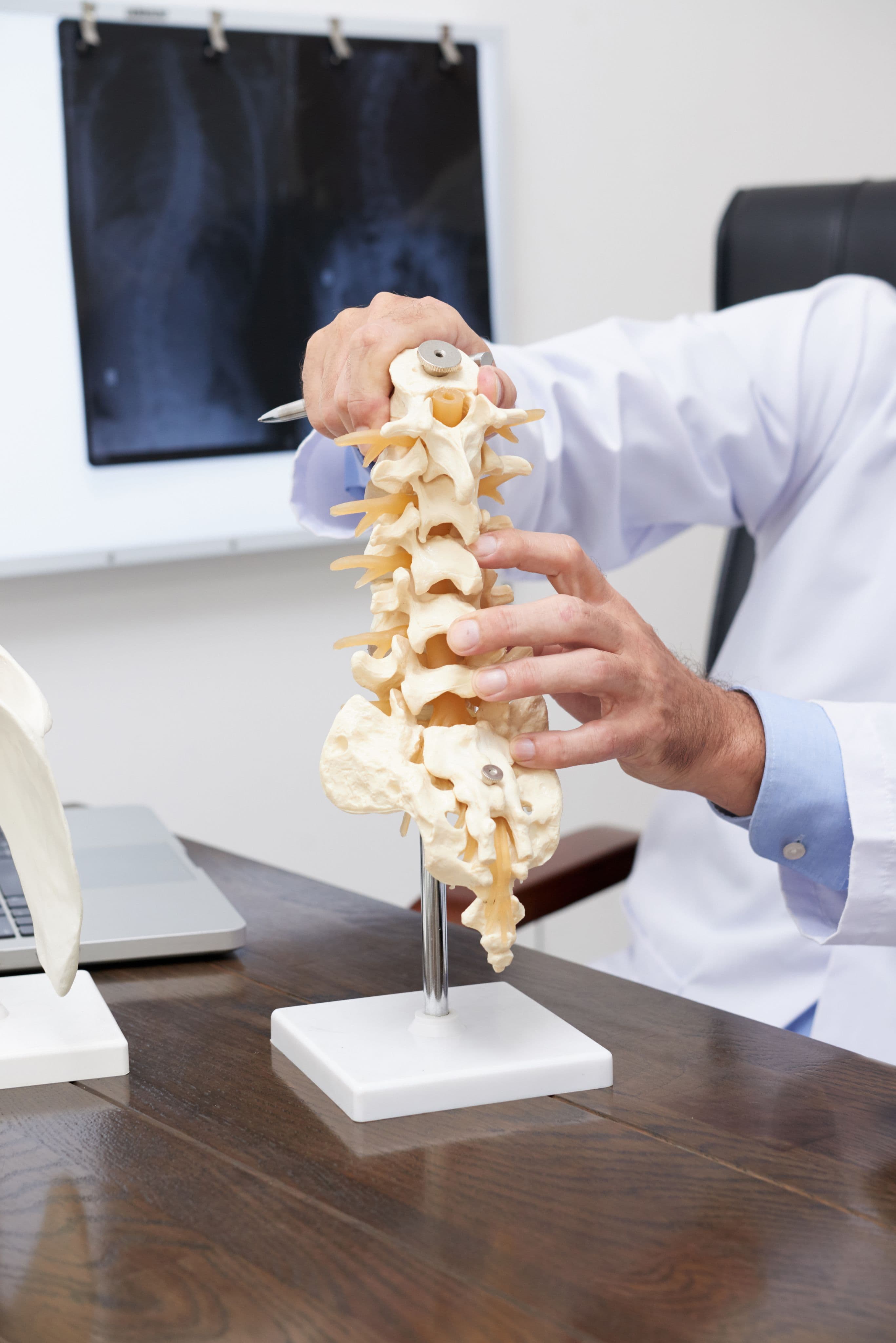Spine Surgery
If you are dealing with neck or back pain, you may be considering if spine surgery is the best choice for you. Many back problems can be treated without surgery, but Precision Pain and Spine Institute offers advanced care for spine conditions that don’t improve with non-surgical methods.
Is Spine Surgery the Right Choice for You?

Benefits of Minimally Invasive Spine Surgery
Today’s imaging and surgical tools let surgeons fix many spine problems through incisions barely an inch long. Real-time fluoroscopy and endoscopic cameras steer instruments precisely, so muscles stay intact and healthy tissue is spared. Less disruption means less postoperative pain, lower infection risk, shorter hospital stays—often same day—and a faster return to work and daily activities compared with traditional open procedures.
Benefits of Minimally Invasive Spine Surgery
Today’s imaging and surgical tools let surgeons fix many spine problems through incisions barely an inch long. Real-time fluoroscopy and endoscopic cameras steer instruments precisely, so muscles stay intact and healthy tissue is spared. Less disruption means less postoperative pain, lower infection risk, shorter hospital stays—often same day—and a faster return to work and daily activities compared with traditional open procedures.

Common Conditions & Our Surgeries
When other treatments like physical therapy or medications don’t work, spine surgery may be the next step. Some spine conditions cause pain and discomfort that can be improved or fixed with surgery. These conditions include:

What Are the Risks of Spine Surgery?
What Are the Risks of Spine Surgery?


What is the typical recovery timeframe following spine surgery?
It depends on the treatment and how long it takes to heal. After six weeks, you should be able to go back to your routine. This number can change based on your age, the complexity of your condition, and how active you were before surgery. A longer rehab time may be needed after spine treatments like a laminectomy or spinal fusion that need the spine to heal more. Because minimally invasive surgery is less invasive, they have faster healing times. Using these methods can change how long it takes to heal. Pain relief will happen right away for most people after surgery, but it’s normal to feel some pain again as your spine heals. At Precision Pain and Spine Institute, a pain management expert will help you make a plan for how to deal with your pain while you heal. This plan may include physical therapy, which may also be a part of your plan to help you get your strength and range of motion back. As an orthopedic practice that offers physical therapy, chiropractic care, and pain management, We are happy to be a part of your post-surgery healing, no matter what your plan is.
What is the typical recovery timeframe following spine surgery?
It depends on the treatment and how long it takes to heal. After six weeks, you should be able to go back to your routine. This number can change based on your age, the complexity of your condition, and how active you were before surgery. A longer rehab time may be needed after spine treatments like a laminectomy or spinal fusion that need the spine to heal more. Because minimally invasive surgery is less invasive, they have faster healing times. Using these methods can change how long it takes to heal. Pain relief will happen right away for most people after surgery, but it’s normal to feel some pain again as your spine heals. At Precision Pain and Spine Institute, a pain management expert will help you make a plan for how to deal with your pain while you heal. This plan may include physical therapy, which may also be a part of your plan to help you get your strength and range of motion back. As an orthopedic practice that offers physical therapy, chiropractic care, and pain management, We are happy to be a part of your post-surgery healing, no matter what your plan is.

If you’ve tried everything else and still want surgery, Our spine team can help you make up your mind. When it has to be done, it should be as painless as possible. You are not committed to having spine surgery just because you talk to a spine expert at Precision Pain and Spine Institute.
Schedule a consultation to explore your spine treatment options and determine the approach that’s best for you.
Need a consult?

Need a consult?

Frequently Asked Questions [FAQs]
